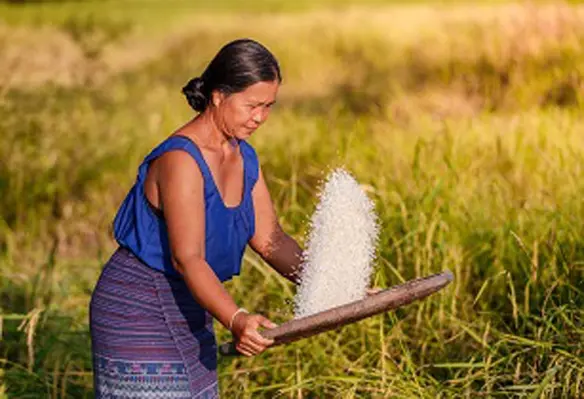Amidst insufficient rainfall, Thailand has called upon its farmers to decrease rice cultivation in order to conserve water
This move comes as India's ban on certain rice shipments adds to the global supply concerns. While most rice planting has been completed by farmers in the central region, the Government is now promoting a shift towards cultivating alternative crops that demand less water. The Office of the National Water Resources, represented by Surasri Kidtimonton, secretary-general, issued a statement supporting this transition.
Thailand, a significant rice exporter and the second-largest globally, is grappling with reduced rainfall due to the looming El Nino weather pattern, which is causing drier conditions. The central region has experienced a notable 40% deficit in cumulative rainfall compared to typical levels. The decision to limit rice planting aims to preserve water for domestic consumption, as stated by Kidtimonton.
Rice prices across Asia recently surged to their highest point in more than three years following India's ban, a major exporter. Rice is a staple in the diets of billions, and further price increases would add to the inflationary pressures faced by consumers.
Thailand's central region was projected to contribute nearly 14% of the total rice-growing area in 2023 and account for approximately 19% of the main paddy harvest in the 2023/24 season, according to the Ministry of Agriculture. Water levels in key reservoirs in this region are currently at around 51% of their capacity, as reported by Kidtimonton.
Anticipating the potential impact of El Nino on rainfall, the Government had previously advised farmers to opt for a single crop this year, departing from the usual practice of two crops. Nonetheless, the shortfall from Thailand may be partially offset by Vietnam, which is poised to exceed its annual shipment target.




